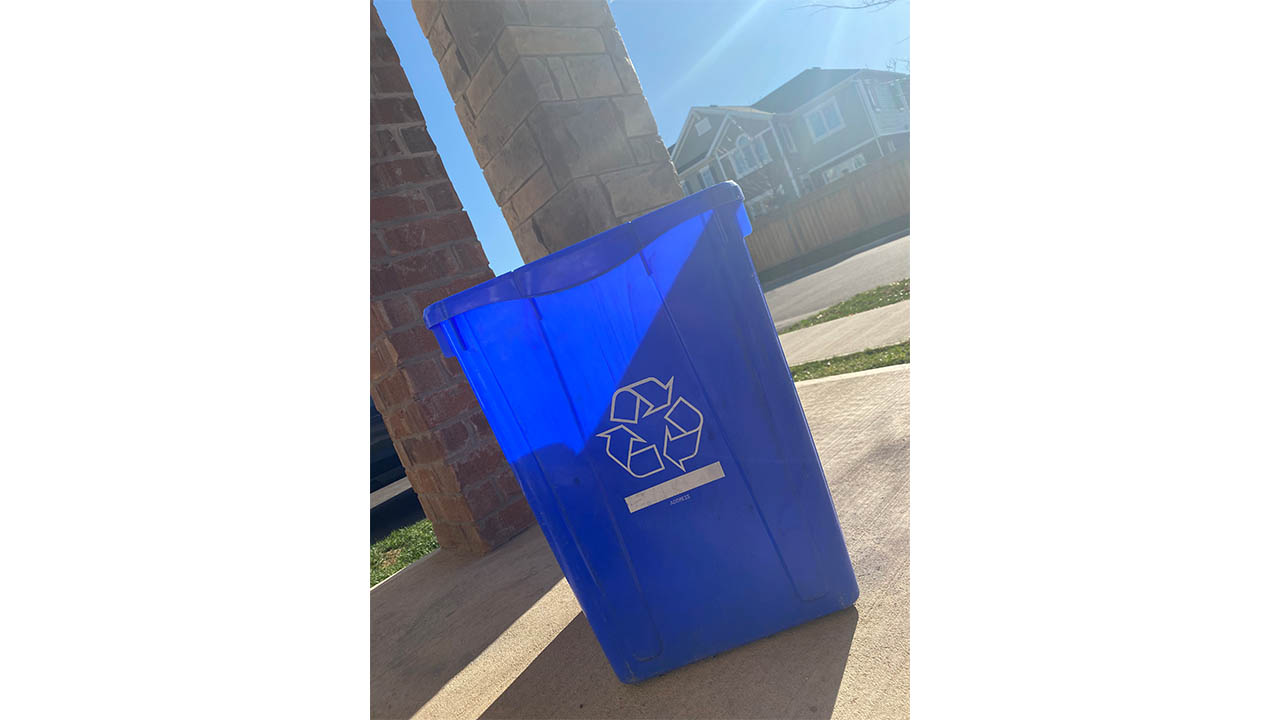Ontario's new blue box plan a step in the right direction
 CREDIT: SALMA HUSSEIN
CREDIT: SALMA HUSSEINOpinion: Landfills are piling up with waste more than ever now, and initiatives like the blue box plan are programs we need to support in order to reduce our already immense ecological footprint.
If everyone takes a moment of their day to properly sort their garbage, then workers at the landfill wouldn’t struggle to sort through piles of unorganized trash.
The truth is that no matter how many people make that effort, there will still be many more who neglect to take that second and simply throw waste into any bin closest to them at the time. But what if we take the duty of properly sorting waste from the consumers and instead put it in the hands of manufactures and producers?
The new blue box plan is an initiative that will increase recycling and reduce the amount of waste that goes to landfills, according to the Ontario Newsroom. This plan will allow more items to be put in the blue box to be recycled, as it shifts the responsibility to the producers of packaged items to use more ecologically friendly materials.
The initiative should allow more items to be accepted in the blue bin that were never allowed before, such as plastic items and foil. The program is supposed to shift the costs from the taxpayers to the producers of the items consumers purchase. According to the Ontario Newsroom, this shift can save an estimated “$135 million annually for municipalities.”
Another benefit of this program is the promise of expanding the blue box services to rural areas and towns with populations less than 5,000 people. This means more recycling opportunities and less waste in even the more isolated parts of Ontario.
The plan will not just be implemented in house communities but also in apartment buildings, long-term care homes, schools and municipal parks. The more we shift to recycling and allow for more parts of our community to expand on recycling, the less waste ends up in landfills and our planet is better off in the future.
Calvin Lakhan, a York University researcher, told CBC news that there will be additional monthly costs for consumers when producers are forced to use more costly resources to package items. Lakhan predicted that the increase in costs due to costly packaging will impact low income families negatively.
However, the program should be pushing producers of packaged items to find innovative ways to use ecologically friendly resources to manufacture the packaging for various items. When all producers are forced to do the same to adhere to the blue box plan, companies will try to sell their products at a lower price point than market average. That means that eventually consumers, from low to high income families, will be able to purchase packaged items at an affordable price.
Driving producers to use biodegradable packaging and more ecologically beneficial alternatives will help reduce the load on landfills and allow the increased opportunity of repurposing items to be reinserted into the economy, as Jeff Yurek, Ontario Minister of the Environment, explained when proposing this plan. Landfills are piling up with waste more than ever now, and initiatives like the blue box plan, are programs we need to support in order to reduce our already immense ecological footprint.
Editorial opinions or comments expressed in this online edition of Interrobang newspaper reflect the views of the writer and are not those of the Interrobang or the Fanshawe Student Union. The Interrobang is published weekly by the Fanshawe Student Union at 1001 Fanshawe College Blvd., P.O. Box 7005, London, Ontario, N5Y 5R6 and distributed through the Fanshawe College community. Letters to the editor are welcome. All letters are subject to editing and should be emailed. All letters must be accompanied by contact information. Letters can also be submitted online by clicking here.















